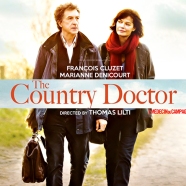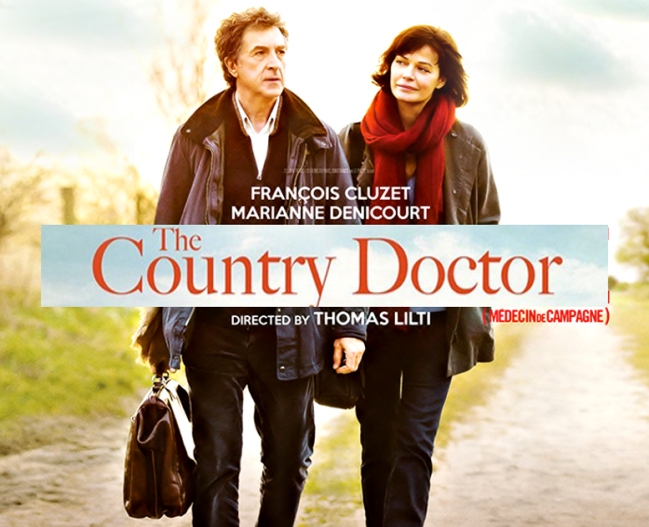 April
13
April
13
Tags
The Country Doctor (2016)

To urban eyes, the rural doctor stereotype is a walking museum of what village medicine used to look like in bygone days. French filmmakers excel in portraying this endangered species and they have done so yet again in the delightful character-rich film The Country Doctor (2016) (Médecin de campagne). To enhance our sense of the fading rural life, the story is framed around a doctor whose own time is fading as the irreplaceable linchpin of his village community.
Made by medic-turned-director Thomas Lilti, the plot is best described as a series of insightful vignettes of rural medicine practised the old-fashioned way. The greatly admired Dr Jean-Pierre (François Cluzet) has been caring for the village most of his life and now learns that he has a life-threatening tumour. Ordered to slow down for treatment, medical authorities send an assistant doctor, Nathalie Delezia (Marianne Denicourt) who quickly proves unnervingly competent and willing to lighten his load. Predictably, Jean-Pierre does not take well to losing his role as sole-carer for the village and mischievously makes things difficult for her. He sends her into farms and homes with known annoyances to discourage her from staying, but when she proves her worth in medical emergencies he is forced to accept her help. As his prognosis worsens, the growing respect between them becomes noticeably warmer as they both confront an uncertain future.
In many respects, this story is a predictable cluster of clichés made attractive by a picturesque rural setting captured perfectly with camerawork sympathetic to its natural beauty. Like in many countries, a rural doctor’s life is a public script of farmyard and roadside accidents, comforting home visits, and a surgery full of patiently waiting regulars with ailments both serious and small. The village community adores their doctor and the doctor in turn is a caring father to all. But this is a film where the simple plot and its constructions are less important than its characterisations. François Cluzet is France’s version of Dustin Hoffman, an actor who radiates open warmth, compassion and understanding. His almost musical face can express emotion with a single note consisting of a slight raising of an eyelid, or a wry turn of a lip that hints of a smile, or a faintly furrowed brow that speaks concern. Marianne Denicourt is perfectly cast as the late blooming nurse turned doctor, whose big eyes converse at first hesitantly then warmly with the reluctant senior medic. While the plot may be clichéd, their relationship has none of the conventional hallmarks of romance. Indeed, it is only in the final minutes that we sense their comfort in one another’s presence.
This is a fine example of classic French romantic drama. It is totally driven by characterisation that is earthy, understated and open-hearted with a rich rural aesthetic that evokes the mutual dependencies that are typical amongst country people. It speaks of the unstated and unseen organic wholeness of community that is rare in urban life. It is also a film where most viewers leave with an unmistakable smile.

Director: Thomas Lilti
Stars: François Cluzet, Marianne Denicourt

Sounds like a film I would enjoy. I’ll be looking for it. France’s version of Dustin Hoffman…that alone got my attention. 😉
LikeLiked by 2 people
It is a sweet film that I’m sure you will enjoy. Its refreshingly restrained yet leaves a lingering warmth.
LikeLike
Nice review. The dude who directed Thomas Lilti that used to be a doctor. He said if People seeing this film change their mind about country doctor I did my job. The thing is we need doctor in the country where nobody want to go practice. He also directed Hippocrate. That was good too. He still has his practice as a doctor, he direct film in between. There now you know.
LikeLiked by 1 person
Thank you for that information Dude.
LikeLiked by 1 person
Pingback: The Country Doctor (2016) | CineMuseFilms | Rogues & Vagabonds